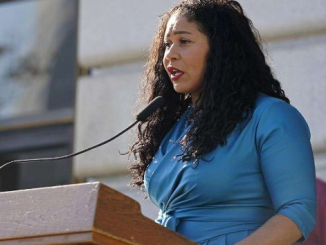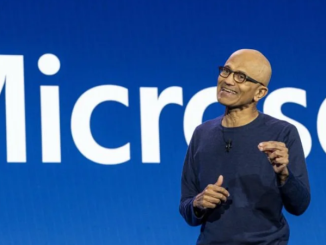
The program, which will see up to 20 students from the North African country attend Space Camp in August for one week in Huntsville, Alabama, is being run through the U.S. Embassy to Libya, which was evacuated and closed in 2014 due to violence in Tripoli just two years after attacks on U.S. government facilities in Benghazi. For its implementation, the State Department awarded $135,267 to Amideast, a charity in Washington, D.C., focused on creating “life-changing opportunities for education and cultural exchanges” between foreign countries and the United States, the agency said.
“You’ve got to question the rationale behind it,” said Rep. Tim Burchett (R-TN), who sits on the House Foreign Affairs Committee. “Liberals see this and think it’s a great idea. They think it’s going to change what Libya thinks of America, and it won’t. It just doesn’t work because they hate our country, and as long as they’re burning the American flag, I just don’t think we ought to have anything to do with them.”
The forthcoming August Space Camp is a window into how the federal government routinely partners with foreign nations and obscure organizations on initiatives that Republicans say are a classic waste of taxpayer dollars, often leading to lawmakers demanding grant records from Secretary of State Antony Blinken. Federal spending documents show the program is being administered by the State Department’s Bureau of Near Eastern Affairs.
{snip}
“In this case, the implementing partner (awardee) is a thoroughly vetted American entity and the program benefits U.S. airlines and local and small U.S. businesses,” Hamalawy, a former longtime producer for the Qatari-owned Al Jazeera Media Network, told the Washington Examiner. “The objectives of this program are consistent with the department’s budget request to Congress and Congress’s resulting appropriation to the department.”
Applicants for the Space Camp should be between 15 and 17 years old, proficient in English, attending high school in Libya, interested in science, and “have no prior study or travel experience in the U.S.,” according to the State Department. Essay questions on an application obtained by the Washington Examiner include “Why do you want to attend Space Camp?” and “What are your future goals after graduating high school?”
For over 30 years, the U.S. Space and Rocket Center has hosted Space Camp in Huntsville, Alabama, the most populous city in the Cotton State, also home to NASA’s Marshall Space Flight Center. At the camp, “students are immersed in astronaut training techniques using equipment adapted from NASA’s astronaut program” and “work as a team and confront mission scenarios that require dynamic problem solving and critical thinking,” according to the Space and Rocket Center, which says the program was the “brainchild” of rocket scientist and former Nazi Party member Wernher von Braun.
The experience “will enable talented students to gain cross-cultural exposure,” Hamalawy said. Amideast, the awardee, operates in nearly two dozen countries and sits on $42.9 million in assets, according to its financial disclosures filed in August of last year.
{snip}
In 2016, Obama said the worst mistake of his presidency was not planning for the aftermath of Libyan dictator Muammar Qaddafi’s ousting and death in 2011, which led to a rapid increase there in the presence of jihadist groups — including the Islamic State.
To one former high-ranking State Department official who spoke with the Washington Examiner, it’s not really clear how bringing teenagers from Libya to Alabama for Space Camp will “advance U.S. interests.”
“The whole thing is hilarious,” the former official said.
Libya isn’t exactly a booming technology hub and it’s also a seemingly random country for the Biden administration to focus its six-figure Space Camp award, according to the former official. Since 2011, the U.S. Agency for International Development has transferred at least $72 million in humanitarian aid to Libya, which has a population of roughly 6.9 million people.
But it’s not the first time the U.S. government has come under fire for handing out Space Camp checks benefiting foreigners.
Sen. Rand Paul (R-KY) notably highlighted a $250,000 State Department grant in his 2015 “Waste Report” finding the agency paid for Pakistani youth to attend Space Camp and the Dollywood Theme Park in Washington, D.C., which “offers more than 50 world-class rides, high-energy entertainment, award-winning dining, and the friendliest theme park atmosphere in the world,” according to the park’s website.
{snip}
In 2022, the State Department also dished out roughly $350,000 to the Pakistan-based Dawood Foundation to bring 25 students to the U.S. for Space Camp, federal spending records show.
The State Department also awarded $45,000 in September 2023 to FJ Steam Princess, a nonprofit organization in the South Pacific country of Fiji, to allow high school students to participate in Space Camp. FJ Steam Princess fosters science, technology, engineering, and mathematics “careers in young girls in the Pacific in a fun and creative way,” according to its website.
The Moroccan Initiative for Space Industry, which “aims to leverage space industry experience for a better Morocco,” took home $32,285 in June 2023 from the State Department for a six-day Space Camp, according to grant records.
As for the Libya program, teenagers in the country have until Feb. 25 to apply for a spot in Huntsville this summer.
One congressman on the House Judiciary Committee told the Washington Examiner he finds the more than $135,000 Amideast grant to be an example of irresponsible government spending that “must stop.”
“Our government has taken advantage of the goodwill of the American taxpayer,” Rep. Troy Nehls (R-TX) said.


